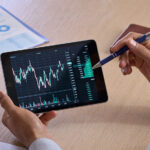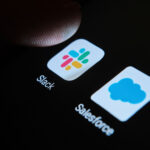PC
A personal computer is a general-purpose computer whose size, capabilities and original sale price make it useful for individuals, and is intended to be operated directly by an end-user with no intervening computer operator. This contrasts with the batch processing or time-sharing models that allowed larger, more expensive minicomputer and mainframe systems to be used by many people, usually at the same time. A related term is “PC” that was initially an acronym for “personal computer”, but later became used primarily to refer to the ubiquitous Wintel platform. Software applications for most personal computers include, but are not limited to, word processing, spreadsheets, databases, web browsers and e-mail clients, digital media playback, games and myriad personal productivity and special-purpose software applications. Modern personal computers often have connections to the Internet, allowing access to the World Wide Web and a wide range of other resources. Personal computers may be connected to a local area network (LAN), either by a cable or a wireless connection. A personal computer may be a desktop computer or a laptop, netbook, tablet or a handheld PC. Early computer owners usually had to write their own programs to do anything useful with the machines, which even did not include an operating system. The very earliest microcomputers, equipped with a front panel, required hand-loading of a bootstrap program to load programs from external storage (paper tape, cassettes, or eventually diskettes). Before very long, automatic booting from permanent read-only memory became universal. Today’s users have access to a wide range of commercial software, freeware and free and open-source software, which are provided in ready-to-run or ready-to-compile form. Software for personal computers, such as applications and video games, are typically developed and distributed independently from the hardware or OS manufacturers, whereas software for many mobile phones and other portable systems is approved and distributed through a centralized online store. Since the early 1990s, Microsoft operating systems and Intel hardware have dominated much of the personal computer market, first with MS-DOS and then with Windows. Popular alternatives to Microsoft’s Windows operating systems include Apple’s OS X and free open-source Unix-like operating systems such as Linux and BSD. AMD provides the major alternative to Intel’s processors.













